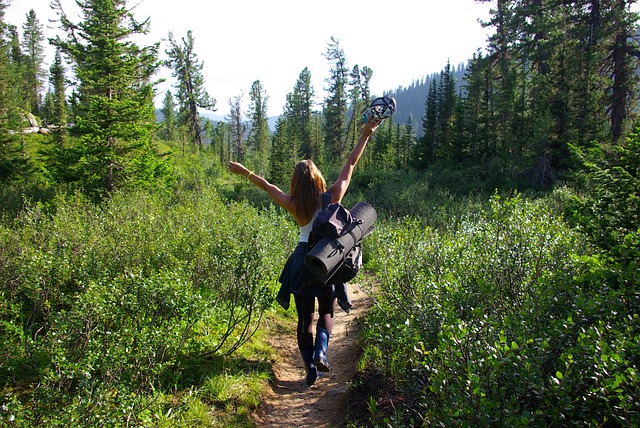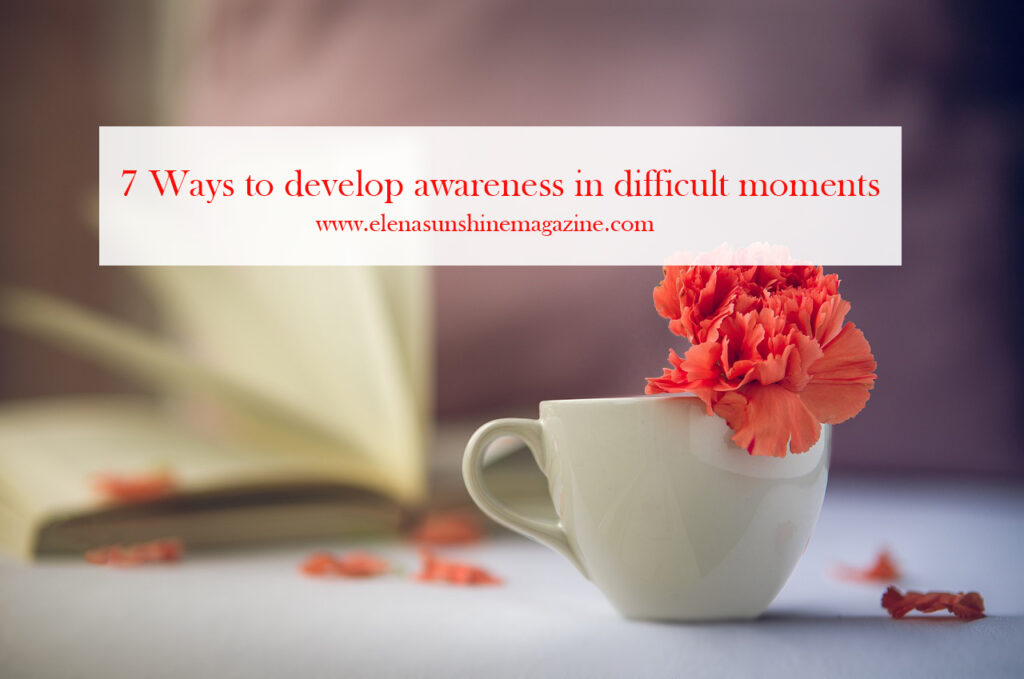In mindfulness mode, we make an informed choice and accept the world as it is. We know that our thoughts are only a product of consciousness, we approach problems and accept unpleasant things, and we live here and now. 7 Ways to develop awareness in difficult moments.
We accumulate resources, let go of unnecessary things, and look at everything for the first time, as a beginner, we are kind to ourselves, we feel interested, we are unappreciative, patient, and trusting, and we focus on the process.
Mindfulness is a concept in psychology, defined as the continuous tracking of current experiences. This is a state in which a person focuses on experiencing the present moment, trying not to be distracted by past events or thoughts about the future.
Instead of fighting reality, we accept it as it is, without evaluation. We recognize that things and people are what they are, without trying to change them. We recognize that reality and our experiences can be both unpleasant and painful and that we can also lose.

But by observing these feelings, we can effectively gain experience here and now, study them, and not condemn them. We refuse to suppress or consciously control emotions, but at the same time, we retain the ability not to react automatically to emotional impulses.
#1. Put a boundary between yourself and your emotions. 7 Ways to develop awareness in difficult moments.
Our psyche has a unique and unpleasant feature – to react to thoughts, feelings, and sensations, merging with them. And to such an extent that they begin to define us. Instead of separating our experiences (they come and go), we consider them an integral part of our personality.
Mindfulness is the ability to perceive events. That is, to be aware of your feelings, to listen to them, but not to merge with them.
In psychology, this is called open expanded consciousness. This is the ability to look at the situation from different angles, to take into account different points of view — as opposed to narrowed and reactive consciousness. When we focus only on failure and pour out a stream of harsh self-criticism on ourselves (by the way, it only increases the feeling of loneliness and isolation).
#2. Practicing mindfulness. 7 Ways to develop awareness in difficult moments.
When you notice the appearance of thoughts and get rid of them, you practice mindfulness. The task is to calmly make a decision whether you want to spend your mental strength on it now or not.
Imagine that these thoughts are paths in the forest. The more often you make a conscious decision not to walk on them, that is, not to cherish the trauma in your mind, the faster the trauma will disappear (the paths will overgrow).
In reality, this is what happens: neural pathways in the brain – the basis of our habits – arise and disappear under the influence of our repetitive actions and thoughts. We can manage them – to pave new neural pathways and allow the old ones to “overgrow”.
#3. Don’t avoid negative emotions. 7 Ways to develop awareness in difficult moments.
To experience pleasant feelings — love, joy, surprise — you need to be ready to experience unpleasant ones — sadness, anger, fear. No matter how careful we are, it’s impossible to avoid negative experiences – that’s how life works.
Remember that our emotional reactions are natural, it is not a sign of weakness or shortcomings. Living a full life means noticing the pain and accepting it, and not trying to make it go away.

If you treat the symptoms of panic, stress, and nervous fatigue as natural bodily ways of reaction. They will pass over time and do not respond to their threat message, you begin to be less afraid, and panic attacks decrease in frequency and intensity. If you are present in a life situation, rather than avoiding it, anxiety decreases over time.
#4. Complete the stress cycle
If we are in a hurry to drown out unpleasant emotions in any way, we only intensify them.
What’s really going on? You artificially slow down your reactions, do not allow yourself to fully realize your experiences and thereby complete the stress cycle. Instead of getting out of stress, you freeze in it — it is painful and harmful to health and further complicates a life already filled with stress. Allow yourself to feel the stress to the end. Emotions are tunnels: you need to go to the very end, through the darkness, and come out into the light.
Ignore the tension and stiffness, focus on your breathing – take a few deep breaths and exhalations.
#5. Rethink your “but”
Often we tell ourselves that we want to do something, but there is a reason why we can’t.
Try, when you catch yourself thinking that you are thinking or saying “but”, substitute the union “and” instead of “but”.
#6. Let values lead you, not emotions. 7 Ways to develop awareness in difficult moments.
Our emotional reactions provide us with important information about an unpleasant situation. They don’t always push us to take actions that will help us. We are accustomed to believing that feelings precede action, encourage it. In fact, we can do anything, despite our emotions at the moment.
Your task is not to succumb to them, to remain calm (that is, to observe your emotional center from above) and act as you see fit, to do what you believe in.
You need to decide what kind of person you want to be in this situation – that is, choose what is valuable to you. To realize your values is to imagine what you would do if you didn’t feel fear, guilt, anger, or any other negative emotion that you are currently focused on.
We are ready to feel discomfort in order to truly participate in our lives, and values are our guidelines. They fill our actions with dignity and meaning in every moment we live.

#7. Practice curiosity and self-compassion. 7 Ways to develop awareness in difficult moments.
These are two of the most powerful levers in managing emotions – first of all, anxiety. When there is no certainty about the future, anxiety is a natural reaction. When mentally exhausted, avoidance is a natural reaction. The way out of these states is self–compassion.
Take a deep breath and let your consciousness expand – observe and notice the full range of your reactions, but don’t judge them, just acknowledge them.
Mindfulness allows us to look at the situation with new eyes — to explore our negative reaction with curiosity as if it were an exciting adventure, a new experience. The sooner you notice the anxiety and find a couple of minutes to write down your feelings on paper, the better.
So you will learn to recognize the moments when consciousness is distracted from the present and plunges into an imaginary frightening future or spends your mental strength on a painful episode of the past. Awareness shifts the focus of attention to the present, and we can see new, hidden solutions.
Why is the development of mindfulness so important? And one of them is to become happier. But how exactly does mindfulness help us in this? First, mindfulness helps to gain clarity about how we create suffering in our lives. And also gives you the power to do something else.



